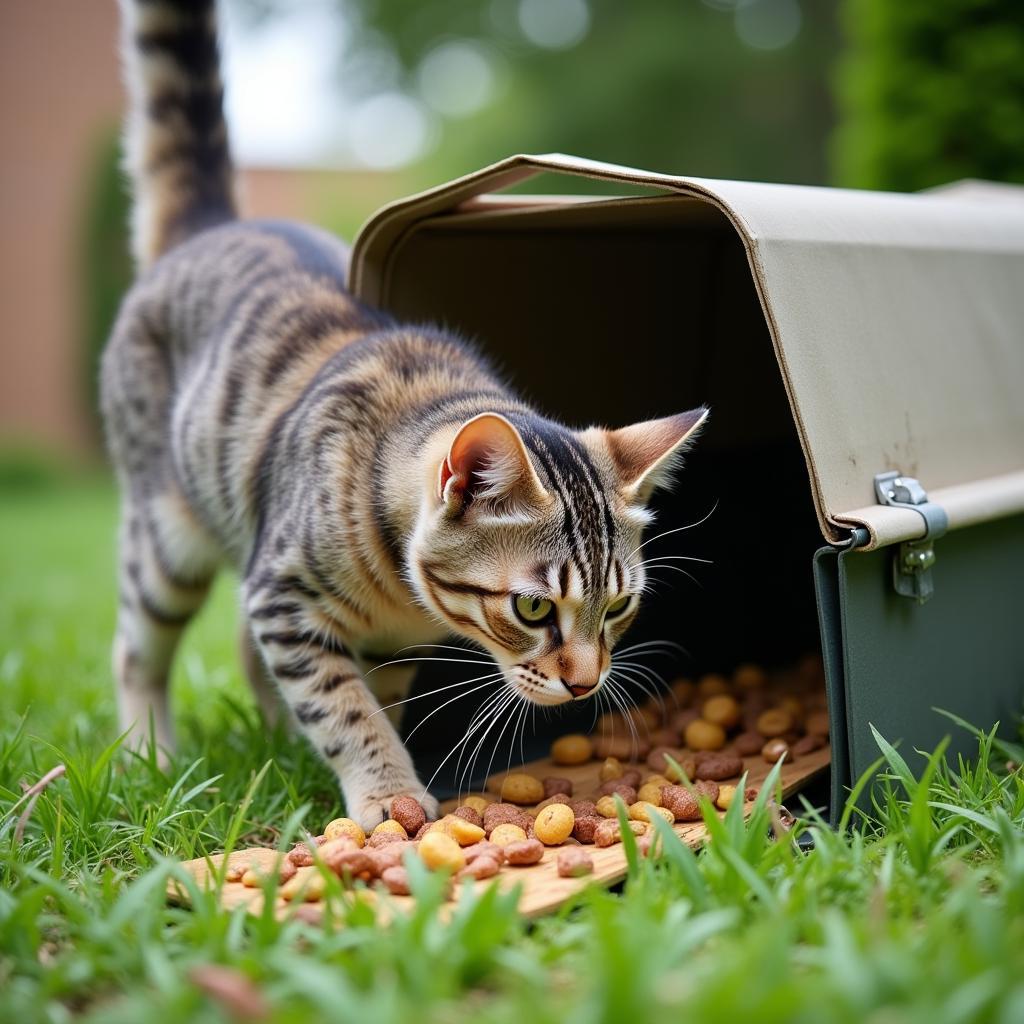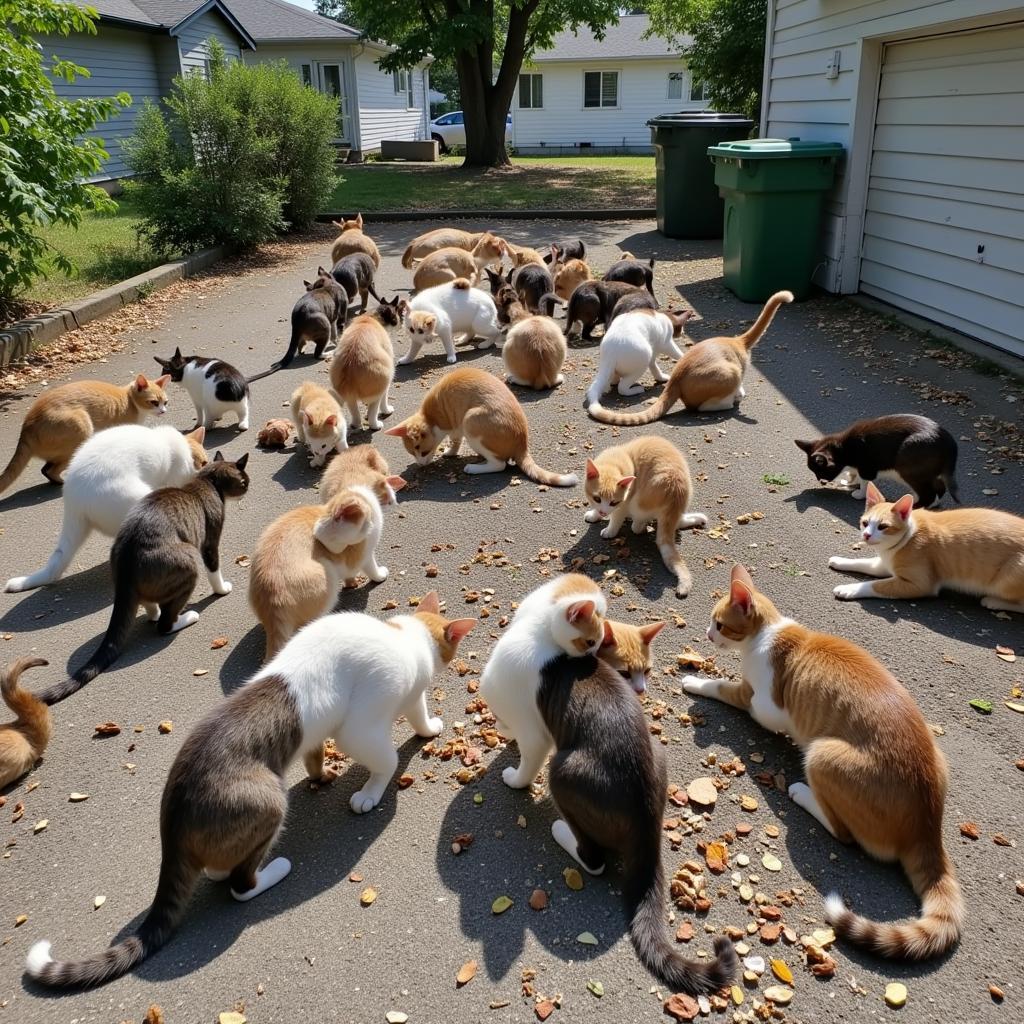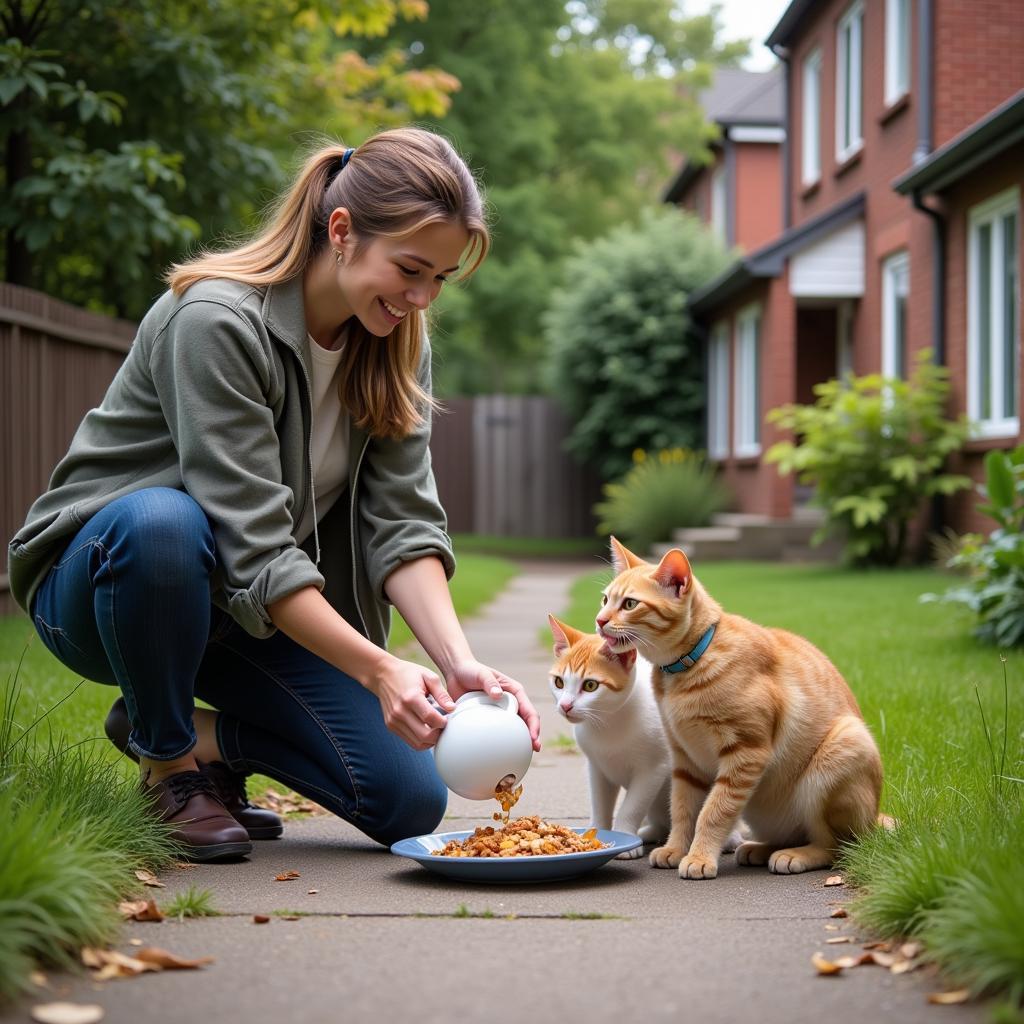The Humane Society Feral Cat Program, often centered around Trap-Neuter-Return (TNR), is a crucial initiative for managing and improving the lives of feral cat colonies. These programs address cat overpopulation, improve community relations, and promote the well-being of these often-misunderstood animals.
Understanding the Humane Society Feral Cat Program
Feral cats, unlike stray cats, are not socialized to humans and live outdoors in colonies. They are often born and raised on the streets and are typically wary of human interaction. Humane societies recognize the need for a compassionate and effective approach to managing these colonies, and TNR programs are the cornerstone of this effort. These programs involve trapping the cats, sterilizing them, and returning them to their original colony.
The best way to address the complex issue of feral cat populations is through collaboration. Organizations like the Best Friends Animal Society Network Partners are instrumental in this endeavor. They provide resources and support to local humane societies and communities to implement successful TNR programs.
What exactly is involved in a TNR program? Let’s delve into the specifics of each step. First, cats are humanely trapped using safe traps. Then, they are transported to a veterinarian to be spayed or neutered and vaccinated against rabies. Finally, they are returned to their colony, where a designated caregiver often provides food and water.
 Feral cat being trapped as part of a TNR program
Feral cat being trapped as part of a TNR program
Why TNR is Effective
TNR is widely recognized as the most humane and effective method for managing feral cat colonies. By sterilizing the cats, TNR prevents further breeding, gradually reducing the colony size over time. This, in turn, reduces nuisance behaviors like fighting and yowling, improving the quality of life for both the cats and the community.
Benefits for the Cats
- Prevents unwanted kittens, reducing the number of cats living on the streets.
- Reduces the spread of diseases within the colony.
- Decreases fighting and territorial disputes.
- Improves the overall health and well-being of the cats.
Benefits for the Community
- Reduces nuisance behaviors associated with mating, such as spraying and yowling.
- Improves community relations by addressing concerns related to cat overpopulation.
- Promotes a more humane and compassionate approach to animal welfare.
- Provides a sustainable solution to managing feral cat populations.
“TNR programs empower communities to address the root cause of feral cat overpopulation in a compassionate and effective manner,” says Dr. Emily Carter, DVM, a leading expert in animal welfare.
 Feral cat colony after implementing a TNR program
Feral cat colony after implementing a TNR program
How to Get Involved in a Humane Society Feral Cat Program
Want to make a difference in the lives of feral cats? There are many ways to get involved with your local Humane Society of Central Illinois Normal IL.
- Volunteer your time to assist with trapping, transporting, or caring for the cats.
- Donate food, supplies, or financial resources to support the program.
- Educate your community about the benefits of TNR and advocate for humane solutions.
- Become a designated caregiver for a colony in your neighborhood.
“Every act of kindness, no matter how small, contributes to the well-being of these animals and strengthens our community’s commitment to compassion,” adds Maria Sanchez, a dedicated TNR program volunteer.
 Volunteer caring for feral cats in a TNR program
Volunteer caring for feral cats in a TNR program
Conclusion
The humane society feral cat program, with its emphasis on TNR, provides a compassionate and effective solution to managing feral cat populations. By working together, we can create a more humane world for these often-overlooked animals and foster a sense of peace and understanding within our communities. Support your local humane society and join the effort to improve the lives of feral cats.
FAQ
- What is TNR? Trap-Neuter-Return. It involves trapping feral cats, sterilizing them, and returning them to their colony.
- Why is TNR important? It controls the feral cat population humanely and reduces nuisance behaviors.
- How can I help? Volunteer, donate, or become a caregiver for a colony.
- Is TNR effective? Yes, it’s the most humane and effective method for managing feral cat populations.
- What is the difference between a feral and stray cat? Feral cats are not socialized to humans, while stray cats are.
- How are feral cats cared for after TNR? Designated caregivers often provide food and water.
- Where can I find my local TNR program? Contact your local humane society.
Common Scenarios
- A resident notices a group of cats in their neighborhood.
- A business owner is concerned about cats on their property.
- A community wants to address cat overpopulation humanely.
Further Information
Explore related articles on our website for more information about animal welfare and community engagement.
Contact Us
For assistance, please contact us: Phone: 02043854663, Email: [email protected], or visit us at: Khu 34, Bắc Giang, 260000, Vietnam. We have a 24/7 customer support team.